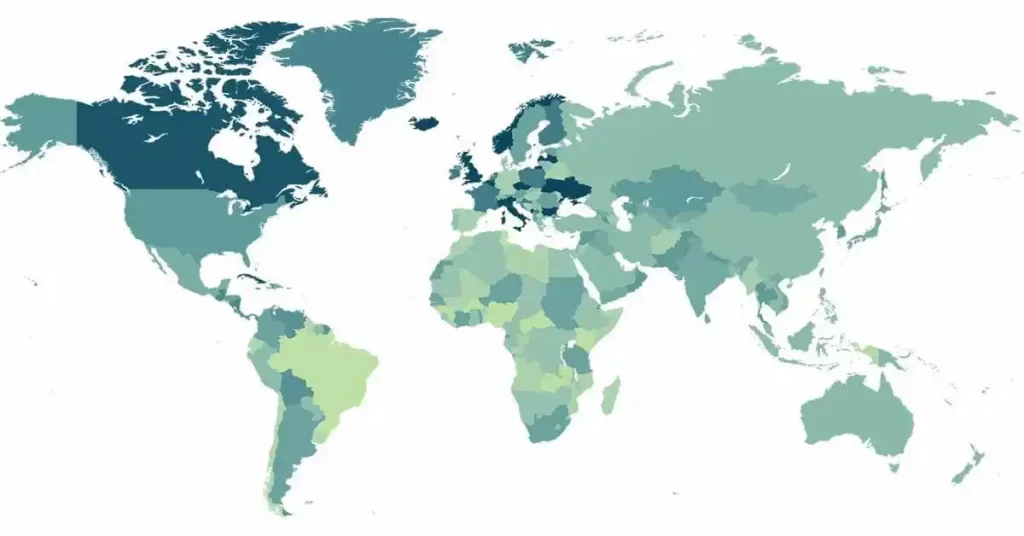Data is frequently heralded as the new money in the digital age, and data science has become more important in this context for turning unprocessed data into insightful knowledge. The future of data science courses and training becomes a crucial topic of discussion as we approach a revolution powered by data. What is in store for individuals eager to explore the nuances of artificial intelligence, machine learning, and data analytics? In this blog, we will look at the present status of data science education and consider the potential trends that may define this dynamic profession in the future.
The Current Landscape: Demand and Diversity
The current landscape of educational institutions for data science is characterized by an unparalleled need for proficient experts to navigate enormous data sets and derive significant patterns. In response to increasing demand, traditional and virtual universities have expanded their offerings to include a wide range of programs, from basic college degrees to specialist certificates in data science training and other subjects.
The diversity in data science education is notable. Many programs focus on a multidisciplinary approach, integrating computer science, statistics, and domain-specific knowledge. This reflects the real-world application of data science, where professionals often collaborate across disciplines to solve complex problems.
The Impact of Technology on Education
You can clearly see how the rapidly evolving field of technology is reshaping education, particularly in the field of data science. Technology is revolutionizing education by introducing new and exciting concepts like virtual reality (VR) and machine learning (AI). Think about gaining practical experience through AI-guided individualized learning pathways and simulations. Learning is no longer only about reading books; it’s about finding a method that works for you.
Now, there’s this impressive rise in online learning platforms that offer these things called Massive Open Online Courses (MOOCs). They’re like a game-changer, making high-quality data science courses accessible to anyone, no matter where they’re from. The cool part about learning online is that it’s super flexible – perfect for folks already working and wanting to pick up new skills or switch to the exciting world of data science. Learning at your own pace, from anywhere – that’s what’s making online education a go-to for many, helping them grow both personally and professionally in the data science field.
Emerging Trends in Data Science Education
- Specialization Tracks:
Specialized programs are being added to educational efforts as the data science sector develops. These courses provide students the flexibility to personalize their education by exploring certain applications of data science, such as natural language processing and financial data analysis. This educational trend reflects the industry’s demand for specific knowledge, allowing students to develop an even more focused set of abilities that correspond to their personal interests and professional ambitions.
- Ethics and Responsible AI
Future developments in data science courses are probably going to include specific topics like ethics, moral AI, and the wider social effects of data-driven technology. This progressive method emphasizes a dedication to developing professionals who are not just technically skilled but also have a sophisticated awareness of the ethical implications of their work. It’s a proactive approach to making sure that upcoming data scientists have the skills and values needed to negotiate the complex ethical terrain that surrounds the developing fields of artificial intelligence and information technology.
- Practical Applications and Industry Collaboration
The future of data science education will likely see a stronger emphasis on practical applications. Collaborations between educational institutions and industry partners will become more integral, providing students with real-world projects, internships, and exposure to the challenges faced by businesses. This approach aims to bridge the gap between theoretical knowledge and practical implementation, better-preparing graduates for the demands of the workforce.
- Integration of Cloud Computing
The integration of cloud computing platforms in data science engineering education is expected to grow. Cloud-based services offer scalable and cost-effective solutions for data storage and processing, mirroring industry practices. Familiarity with cloud platforms like AWS, Azure, and Google Cloud will likely become a valuable skill for data science professionals, and educational programs may incorporate hands-on experience with these tools.
- Continuous Learning and Micro-Credentials
The discipline of data science is constantly evolving due to the constant emergence of fresh technologies. Further learning may adopt a new strategy in order to stay up with this fast-paced world. We may witness an increase in short-term solutions such as micro-credentials and badges in place of lengthy courses. Professionals might remain up to date on the newest developments in data science with the aid of these short learning sessions. It’s all about fostering a culture in which the data science profession is always developing.
Challenges and Opportunities
Data science education appears to have a bright future, but some obstacles must be overcome. Keeping instructional programs current is a difficulty since technology is advancing so quickly. These applications might easily become out of date if they aren’t kept up to date. In online learning environments, striking the correct balance between practical experience and academic knowledge can be challenging. Concerns such as closing the multicultural gap in the data science community and guaranteeing inclusiveness in learning environments are also continuous.
Nonetheless, these difficulties provide chances for creativity and advancement. Academic-industry collaborations may bridge the gap in real-world abilities, and the data science field can benefit from initiatives that advance inclusion and diversity in viewpoints.
Conclusion
The projected growth of data science courses presents promising opportunities for ambitious professionals. Data science’s multidisciplinary approach and technological developments are changing how people learn and use knowledge. With a focus on developing well-rounded and flexible data science experts, the field is changing from specialized courses and ethical concerns to real-world applications and industry partnerships. The importance of education in developing data scientists is only going to grow as we move toward a future in which data remains a key industry driver. The capacity to traverse the complexity of data, along with a thorough awareness of ethical implications and concrete uses, will determine the success or failure of upcoming data science training programs. Future generations of data scientists will have to accept creative thinking, work together, and stay up to date with the expectations of a dynamic industry if they are to be prepared for the opportunities and difficulties that lie ahead.



